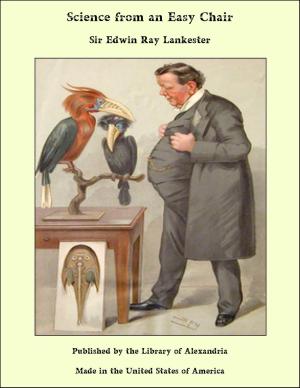Lights and Shadows in Confederate Prisons: A Personal Experience, 1864-5
Nonfiction, Religion & Spirituality, New Age, History, Fiction & Literature| Author: | Homer B. Sprague | ISBN: | 9781465588340 |
| Publisher: | Library of Alexandria | Publication: | March 8, 2015 |
| Imprint: | Language: | English |
| Author: | Homer B. Sprague |
| ISBN: | 9781465588340 |
| Publisher: | Library of Alexandria |
| Publication: | March 8, 2015 |
| Imprint: | |
| Language: | English |
This narrative of prison life differs from all others that I have seen, in that it is careful to put the best possible construction upon the treatment of Union prisoners by the Confederates, and to state and emphasize kindnesses and courtesies received by us from them. For the accuracy of the facts stated I am indebted to a diary kept from day to day during the whole of my imprisonment, and to the best obtainable records. The exact language of conversations cannot of course always be remembered, but I aim always to give correctly the substance. I am aware that the opinions I express in regard to Sheridan's strategy at the Battle of Winchester are not those generally entertained. But I give reasons. His own account of the battle is sadly imperfect. To capture but five guns and nine battle flags at a cost of four thousand six hundred and eighty killed and wounded, and leave almost the entire rebel army in shape to fight two great battles within a month, was not the programme he had planned. Early said "Sheridan should have been cashiered." I shall be blamed more for venturing to question Lincoln's policy of subjugation. He had proclaimed with great power and in the most unmistakable language in Congress that "any portion of any people had a perfect right to throw off their old government and establish a new one." But now, instead of standing strictly on the defensive, or attempting by diplomacy to settle the conflict which had become virtually international, he entered upon a war of conquest. I do not blame him for refusing to exchange prisoners, nor President Davis for allowing them to starve and freeze. Both were right, if war is right. It was expedient that thirty, fifty, or a hundred thousand of us should perish, or be rendered physically incapable of bearing arms again. The "deep damnation of the taking off" was due not to individual depravity but to military necessity.
This narrative of prison life differs from all others that I have seen, in that it is careful to put the best possible construction upon the treatment of Union prisoners by the Confederates, and to state and emphasize kindnesses and courtesies received by us from them. For the accuracy of the facts stated I am indebted to a diary kept from day to day during the whole of my imprisonment, and to the best obtainable records. The exact language of conversations cannot of course always be remembered, but I aim always to give correctly the substance. I am aware that the opinions I express in regard to Sheridan's strategy at the Battle of Winchester are not those generally entertained. But I give reasons. His own account of the battle is sadly imperfect. To capture but five guns and nine battle flags at a cost of four thousand six hundred and eighty killed and wounded, and leave almost the entire rebel army in shape to fight two great battles within a month, was not the programme he had planned. Early said "Sheridan should have been cashiered." I shall be blamed more for venturing to question Lincoln's policy of subjugation. He had proclaimed with great power and in the most unmistakable language in Congress that "any portion of any people had a perfect right to throw off their old government and establish a new one." But now, instead of standing strictly on the defensive, or attempting by diplomacy to settle the conflict which had become virtually international, he entered upon a war of conquest. I do not blame him for refusing to exchange prisoners, nor President Davis for allowing them to starve and freeze. Both were right, if war is right. It was expedient that thirty, fifty, or a hundred thousand of us should perish, or be rendered physically incapable of bearing arms again. The "deep damnation of the taking off" was due not to individual depravity but to military necessity.















